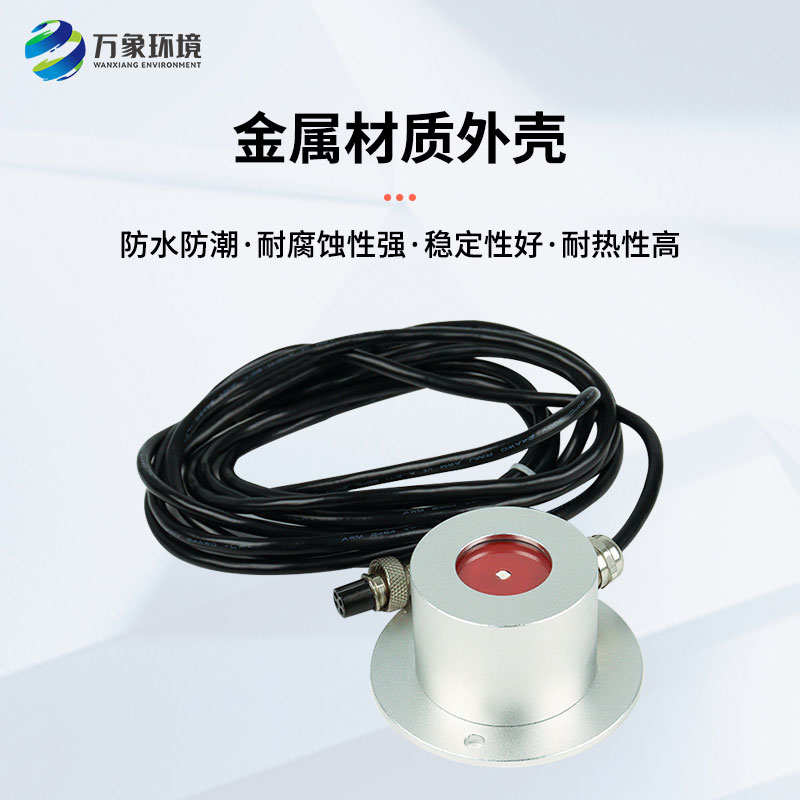The ultraviolet radiation sensor is an instrument closely related to our daily lives. UV radiation is not unfamiliar to everyone, especially in summer when it is exposed to the sun. The impact of UV radiation on the body is mainly on the skin and eyes. Moderate amounts of UV radiation have a positive effect on human health, but excessive UV radiation is harmful to the body. In many fields, it is necessary to monitor ultraviolet radiation. Below is a specialized sensor.
The working principle of the WX-FS4 ultraviolet radiation sensor is to use a photoelectric detector to receive ultraviolet light wave electrical signals. Based on a photosensitive element, it receives ultraviolet light wave electrical signals and converts ultraviolet radiation into measurable electrical signals, achieving online monitoring of ultraviolet radiation. It can be widely used in environmental monitoring, meteorological monitoring, agricultural greenhouses, flower cultivation and other environments, and can also measure ultraviolet radiation in the atmosphere and artificial light sources.
The information we are currently concerned about about ultraviolet radiation is: UV index, UV erythema measurement, the impact of UV on the human body, and the special biological and chemical effects of UV. UV radiation sensors can work closely with data collectors to provide information about these data, so this is an instrument closely related to our daily lives.
It can be widely applied in the research of erythema dose caused by exposure to sunlight, comprehensive environmental ecological effects, climate change, and ultraviolet monitoring and prediction, and has a great role in meteorology, industry, architecture, and medicine.

Article address:
http://www.qxhjjc.com/en/article/797.html


















 Home
Home phone
phone Product Overview
Product Overview Contact Us
Contact Us